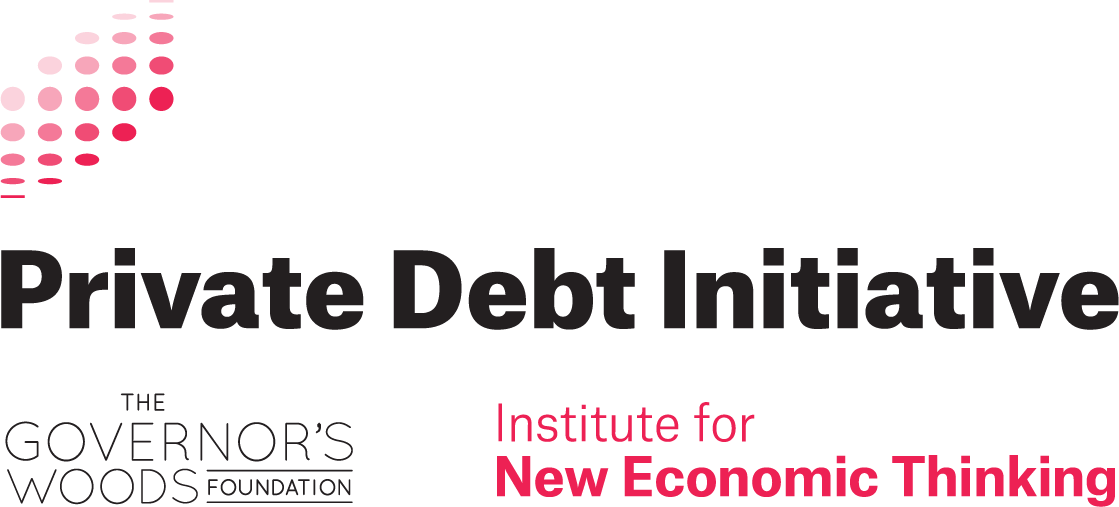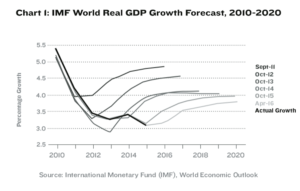The Private Debt initiative is an opportunity to articulate how private debt impacts the economy and to specify the pathways for its effects. The initiative will also lead to better knowledge for the use of regulators, policymakers, journalists, and the public. Finally, the Private Debt initiative will open a better-informed dialogue towards tangible solutions to the problems posed by excessive private debt.
Richard Vague, The Debt We Don't Talk About
We need to ask why debt contracts exist, what benefits they bring, and what risks they inevitably create.
In the years following the Great Recession, policymakers, the media, and public debate have focused a great deal on the issue of sovereign debt, while downplaying or sometimes virtually ignoring the importance of growingprivate debt, both household and corporate, for the health of the economy. There is increasing recognition among a variety of individual scholars as to the key role of private debt in the generation of financial fragility. These scholars have approached the question from a variety of theoretical and empirical perspectives but have often done so without adequate support and without a community of like-minded scholars.
The Institute for New Economic Thinking has helped catalyze the study of private debt and its impacts on the economy in numerous ways. It has supported the formative research of Oscar Jordà, Moritz Schularick, and Alan Taylor, which identifies the role of private debt in numerous historical incidences of crisis; it has funded numerous scholars (Steve Keen, JW Mason, Dirk Bezemer, Barry Cynnamon, Steve Fazzari among others) in their attempts to identify the sources of growing private debt internationally and its deep implications for macroeconomic performance and it has supported Adair Turner’s 2015 book, Between Debt and the Devil which addresses the question of how potentially to manage the private debt overhang.
The Governor’s Woods Foundation also has spurred debate and scholarship on private debt through its sponsored research of young scholars within the “Private Debt Project,” the publication of Richard Vague’s 2014 book The Next Economic Disaster, his 2019 book A Brief History of Doom: Two Hundred Years of Financial Crises, as well as its website and dataset at debt-economics.org. By working together, INET and the Governor’s Woods Foundation can accomplish much more, bringing issues around private debt more deeply into economic analysis and debate, and raising issues around private debt with opinion makers, policy makers, and the public.
The time is now for a concentrated approach to private debt. Mortgage and Corporate Debt continue to be exceedingly high in numerous countries and it is entirely possible that severe crises may re-occur in the absence of a clear understanding and set of paths forward for policy makers. Minimally, we need better understanding of:
- How private debt affects the overall economy
- Private debt’s relation to the causation, intensity, and duration of economic crises
- Identifying the paths of economic damage spurred by excess private debt
- What types of policies might be used to either prevent or limit the impact of debt crises
The Private Debt initiative is an opportunity to deepen and articulate how private debt impacts the economy, specifying the channels and pathways for its effects. The initiative will also lead to guidance for regulators, policymakers, journalists, and the public. Finally, the Private Debt Initiative will firmly link private debt with other major economic factors and will open a better-informed dialogue towards tangible solutions.
Leave this burden unaddressed, and the world will slowly suffocate.
Many scholars and economic analysts are worried about continuing weakness throughout the global economy, while advanced democracies face political shocks rooted in the unresolved economic failures that have left many questioning the relevance of policymaking and elite opinion. At the same time, the turmoil within economics has created an opening for new ideas and analysis. We believe the broad role of private debt in the economy is one of those key ideas and issue areas that must be addressed.
Together, we will firmly root the study of private debt in unimpeachable data, stimulating research from top economists as well as new, younger voices. The scholarship we support will have not only the credibility to engage with mainstream views but also the courage to challenge conventional wisdom. Finally, that work will be communicated widely and effectively in order to create impact and broader change in further research, public opinion, and public policy. INET is ready to carry out this program in partnership with the Governor’s Woods Foundation, and we are excited to build upon the Foundation’s visionary work.













